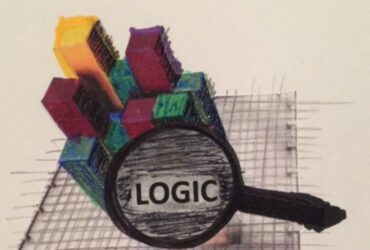Navigating Change? Know thyself…and thy team.
Life is uncertain and the landscape is always changing. We know this, and we also know that there are aspects of each change that are within our control – and those that are not.
We also have default reactions that are hard-wired into our thoughts and behavior.
Knowing our change personality can help us gauge our reactions and channel them in service of our team and our projects. Knowing the natural reactions of others can help us to not take things personally, make fewer assumptions and ultimately be more successful in our change management endeavors.
Read on to learn about four of the most common change personalities.
Just the facts, ma’am.
 Some people’s first reaction to change is to question its logic. Not because it’s not there, but because these analytical people want to understand the rationale.
Some people’s first reaction to change is to question its logic. Not because it’s not there, but because these analytical people want to understand the rationale.
If your first response to a forthcoming change is to ask questions like, “Why would we do that? What are we hoping to accomplish?” you may be one of these clear thinkers who relies on data and analysis. The advantage in this is knowing that if you’re driving change, it is thoughtful and well considered.
The shadow side, is understanding that if you’re on the receiving end of a proposal, your questions to seek understanding may be interpreted by others as judgmental or resistant. Knowing this, can help you understand the landscape and potential impact of conversations with your colleagues so as to intentionally frame your questions as ones to gain clarity and not find fault.
Great! Where’s the bridge so I can jump off it?
 I live out west and in our rural towns, bridge jumping is a real thing. Typically it’s a free fall into a river underneath, and I won’t say that local authorities don’t frown on it, but it’s out there. And it can be an exhilarating, intense bonding experience with friends.
I live out west and in our rural towns, bridge jumping is a real thing. Typically it’s a free fall into a river underneath, and I won’t say that local authorities don’t frown on it, but it’s out there. And it can be an exhilarating, intense bonding experience with friends.
It can also, not surprisingly, lead you to realize that you hadn’t quite thought everything through.
If your natural inclination is to react to the prospect of change by charging toward it with glee, you may need others on your team to remind you to pause and check your safety gear. Yes, a lot of change is good and your optimism, imagination and enthusiasm can help power a movement. It’s also possible that you may have overlooked key obstacles or threats in your rush to experiment.
It’s also good to remember that if you’re a change junkie, incremental change might not even hit your radar. So what seems as if it’s just the same as how you’ve always done it is actually shooting tremors through other personalities.
Hold on, you’re going too fast…
Some people, as we all know, resist change. It’s not because they’re unenthusiastic or unsupportive individuals. It’s because they are practical people who appreciate structure.
 There is value in checking the advantage of the status quo and evaluating the opportunity costs of any change. The Resister hears about change and asks pertinent questions: Is it right? Is it ready? What are we potentially sacrificing in making the switch? The change resister wants to know the plan for implementing change to ensure everything is well thought through, dialed in, and therefore better able to execute when the time comes.
There is value in checking the advantage of the status quo and evaluating the opportunity costs of any change. The Resister hears about change and asks pertinent questions: Is it right? Is it ready? What are we potentially sacrificing in making the switch? The change resister wants to know the plan for implementing change to ensure everything is well thought through, dialed in, and therefore better able to execute when the time comes.
That said, if you tend toward this natural reaction, you may want to lean into the opportunity to wait to ask questions while concepts take shape organically. A good idea is to ensure there will be time in the process for determining these important details…and also to recognize that it might not be at the beginning of the change process.
Knowing the time will come will give you the needed comfort that nothing will be missed, while also allowing for ideas to fully develop. In this way, you can increase the likelihood that your practical concerns will be seen in the well-meaning manner that you intend. If offered too soon or without awareness of potential impact, your considerations may be interpreted by those announcing change as negative or unsupportive.
Are you OK?
 Other people are less concerned with change itself than they are with how it will impact people.
Other people are less concerned with change itself than they are with how it will impact people.
These social personalities may at times over-communicate as they seek reassurances that everyone’s concerns have been addressed; yet this minor impediment to speed has a major effect on the success of any change initiative.
As those who value relationships and collaboration reach out to others, they gain new insights and a deeper awareness of the impact that each change is likely to have. This empathetic information gathering can ensure greater alignment and fewer unintended consequences, keeping social fall-out from sabotaging your endeavor.
Moving Forward
Clearly each perspective brings value to the team and the project. Understanding the personalities at play in your organization – including your own – can help you lead change, develop stronger alliances and achieve better results.

